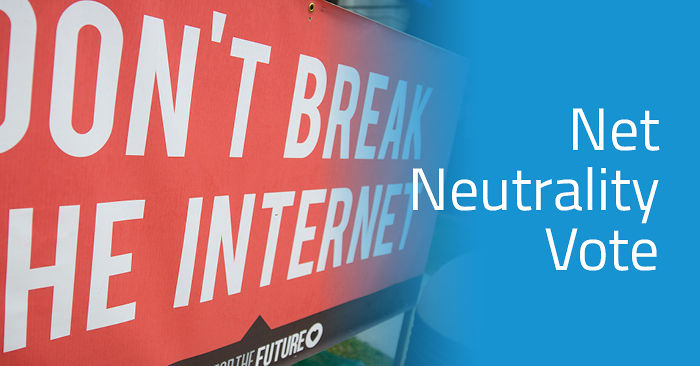How to get a Finnish IP address
The easiest way to improve your digital privacy is to switch your IP address using a VPN. We’ll …


Cyberspace is part of our real space; we use the Internet for entertainment, information, social connections, work, and so much more. Because it plays such an integral role in everyday life, we benefit when the Internet is an open, fair place where access is universal, and no company gets to dictate what we can and cannot do.
The Internet’s fairness — or “net neutrality” — is the topic of an imminent vote by the Federal Communications Commission (FCC). What exactly are they voting on, what consequences will the vote have, and what can you do to make your opinion on the issue heard?
The FCC’s chairman, Tom Wheeler, proposed a set of rules on which the FCC will vote on February 26. All of the rules promote the same goal — that is, preserving the fairness and integrity of the Internet. Some of the specifics of the plan are as follows:
The above rules are a step above the rules that a former FCC chairman proposed in 2010; those rules never went into effect. However, in recent months, President Obama and millions of private citizens have voiced their opinions on the issue. The overwhelming majority cry for a strict policy that will protect the Internet’s integrity as an open communication platform.
The FCC has only five members, but experts predict that at least three of them — that is, the Democrats — will vote in favor of the proposed rules. If a “yes” vote does indeed come through, what will happen?
While the public might smile at the new rules, that may not be the case with ISPs. The regulations could cost them some serious dough. Why? The rules prohibit ISPs from charging companies extra to deliver their content speedily. Furthermore, the network management provision part of the proposal will prevent mobile carriers from choking the data stream of customers who have an unlimited data plan after those customers reach a certain amount of consumed data.
A favorable vote could also redefine the Internet itself, classifying it as a “telecommunication.” This means that the FCC could apply rules that apply to telephone services to broadband. As CNET points out, “This legal definition establishes broadband as a ‘common carrier,’ a centuries-old concept that means their network must be open to everyone.”
All of that might sound like music to the ears of average customers, but a “yes” vote will not necessarily make sure the Internet stays fair. Congress is in the process of concocting its own set of rules to regulate net neutrality. If they pass legislation, it throws the FCC rules out the window.
A vote against Tom Wheeler’s proposal doesn’t seem likely, but if that does happen, what can we expect? At the moment, there are no rules to protect Internet fairness, so business may continue as usual; there will not be any earth shattering bad ramifications in the immediate future. However, things could change down the road as businesses become even more competitive. Blocked sites and slowed connections could become the primary weapons of cyber warfare.
A “no” vote will do more than just frustrate consumers; it could harm startups. In a post on Wired, Tom Wheeler recalls the days when he served as NABU’s president in the 1980s. The company aimed to deliver high-speed data to homes. They had a solid product, but AOL drowned them out. Why did it happen? Because there were no open cable networks. Wheeler explains, “NABU had to depend on cable television operators granting access to their systems… The phone network was open, whereas the cable networks were closed. End of story.”
Last summer, more than four million comments made their way to the FCC regarding net neutrality, and most of those comments contained support for rules to protect the Internet’s openness. You too can contact the FCC to make your voice heard.
There is even more you can do. Congress could shoot down any new regulations the FCC passes; you can let your Congress representative know your opinion on the matter by calling them, or writing them a well-worded email or letter.
You can also write a letter to the editor of your local newspaper. Government representatives often read these as a way of getting a feel for what is on the public mind. It could also help to raise awareness of net neutrality within your local community.
If net neutrality sparks a fire in you, don’t stop at just one or two attempts to influence the issue. Stay abreast of the latest developments in the debate and keep yourself involved in the conversation.
The Internet is a cornerstone of modern society; if that becomes corrupted by unfair practices, it affects life across the board. We are all waiting with bated breath to see what happens on February 26 when the FCC takes its vote.
